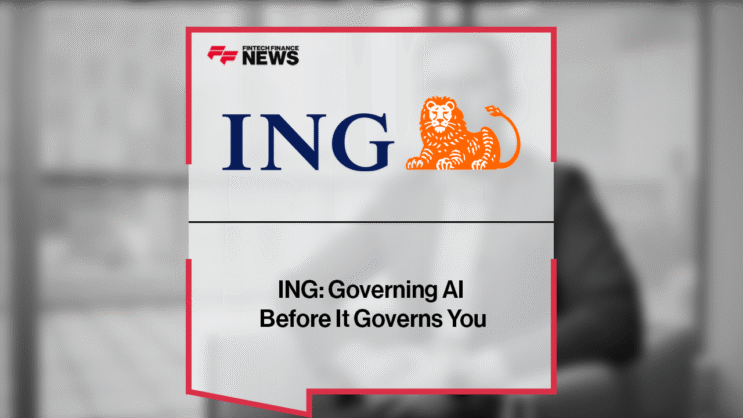Breaking News

How FinTech Is Disrupting Traditional Wealth Management: Threat or Opportunity?
The Digital Shift in Wealth Management
In the world of modern revolutions one that is occurring rather quietly is the one in the financial service sector led by FinTech. Not too long ago, wealth management meant face-to-face meetings, endless paperwork, and a strong sense of exclusivity. The wealth management we have today is more technology-oriented. Wealth management is now, more than ever, accessible to a broader audience through means of digital investment platforms, financial planning backed by AI algorithms and advisory services available on your mobile devices. While FinTech is amazing in more ways than you can imagine, it still is shaking the foundation of what traditional wealth advisory is, thus begging the question: is it here to destroy the existing order or to make things better by providing a smarter, more agile future?
From Niche Startups to Financial Powerhouses
From startups aiming to improve the basic banking functions, FinTech has come a long way. If you’re even remotely into investing, you ought to know just how dominant it has become. The ever growing presence of FinTech is best seen through platforms such as Betterment, Wealthfront, Robinhood and Revolut. Nowadays, digital investment is more accessible, transparent and affordable like never before. The latter is best seen through the ability of all of us to make investments with our smartphones, while only a few decades ago it was a line of business reserved only for the wealthy. The best example of this are the Robo-advisors.
With the presence of AI, nowadays it’s possible to invest without human input and we’re talking about matters such as automatic creation and management of portfolios, rebalancing strategies, goal-based investments and even applications for tax-loss concessions. From the moment more people have become aware of these digital investment platforms, hundreds of billions of dollars have shifted toward these platforms, creating a debate whether the term ‘personal’ still needs to be precisely that – personal.
Pressure on the Traditional Model
The success of FinTech platforms was immediate and impactful. Yet, it’s not all about the technology impact. It’s about what clients expect and that’s full transparency, real-time access, and a real sense of control over their finances. Modern investors want high-end mobile devices, smooth interfaces, mobile apps, access to social media platforms and constant adaptation to new ideas and goals. Traditional advisory models are having a hard time to fulfil these terms, as they’re overly reliant on direct communication and quarterly reviews. When you add the fact that FinTech platforms come cheaper than traditional advisory firms, the latter are having issues with justifying their expenses compared to the results they bring to the table.
One more thing that is an important aspect of the whole shift process is the generational gap. Gen Z and Millennials are more fond of data than the people. Convenience and autonomy they get from FinTech can’t be replaced by a man in a suit. With the way these platforms are growing younger investors will never even be going to have a need for traditional wealth advisory.
A New Opportunity for Advisors
While FinTech brought tectonic changes to the world of wealth management it did not destroy it, nor it intends to do so. On the contrary, it is here to save it, or at least has the ability to do so. We’re already witnessing many advisors, who have their feet in tradition but their eyes on the future, using this new technology as a means of aid, rather than seeing it as a direct competitor. When you combine new technology, with experience & expertise you get a hybrid model of investing.
Those who use this system rely on technology to do the routine tasks of rebalancing a portfolio, risk analysis and data aggregation. At the same time, the advisor can focus on strategies and client relationships. Those who have accepted this shift of power, went from being advisors to financial planners, able to lead their clients from investing to dealing with taxes, estate planning and everything in between. Companies and organizations which use the whole hybrid approach can diversify their client base solely by scaling the services and garnering clients which would most often be too expensive and costly to maintain through old traditional means of wealth management.
As Benjamin Le Maitre, CEO of Auguste Patrimoine, explains: “At Auguste Patrimoine, we believe that FinTech is not a threat but a powerful tool. When combined with tailored human advice, technology can enhance the wealth management experience and deliver greater value to clients.”
This shift from tradition to technology needs to be looked at as a tool that will help advisors in making their services better and faster and not replace them.
New Trends Redefining the Landscape
When we check, we can see that Fintech and overall traditional wealth are becoming one. And it can be seen through a few emerging trends. One of those trends is embedded finance which allows consumers to have easy interactions with financial platforms without any issues. And if you just take one small step into the whole big universe of ESG, you will be welcomed by personalized investing and intelligent algorithms. All this is aligned with your long term goals. At the same time, open finance is breaking down silos, coming at you with a complete financial plan with data collected across banks, different investment platforms, and retirement accounts.
Banks are already using FinTech with their RegTech solutions that serve to simplify compliance, automate client onboarding and above all else reduce the risk of doing business.
The Future Is Hybrid
Forget what you saw in doom movies such as terminator – there will be no war between mankind and the machines. Especially not in the domain of wealth management. Instead we will have cooperation. Those advisors who are quicker to accept the changes are the ones that will have more clients through broader reach, better efficiency and deeper personalization. The time needed to gather data and understand client goals will be reduced and more focus will be put on their peace of mind.
Companies that will lead the domain in the future are not those with the rich history or the largest AUM, but those who meet the changes that are already knocking on their doors with open arms.
A Catalyst for Reinvention
This is not only a passing trend for FinTech, remember this and keep it on top of your mind. It is also not a nuclear warhead aimed at traditional wealth managers. Instead it needs to be seen as a stimulant that will push the entire industry forward by making it more accessible, efficient and transparent. An evolution on every step. At the moment, FinTech is making a few people uncomfortable, but for those willing to adapt it will be an ideal tool to blend human knowledge with modern technology all with the sole goal of progress.
- ING: Governing AI Before It Governs You Read more
- ComplyAdvantage: Why Compliance Must Catch Up With Reality Read more
- Admiral Group Acquires Flock to Drive Innovation in Commercial Motor Market Read more
- HSBC Orion Awarded DIGIT Platform Mandate Read more
- Valentine’s Day Shopping Goes Agentic as Checkout.com Data Reveals Rise in AI-Led Gifting Read more

















